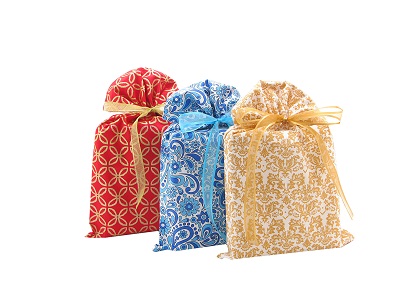The new homeowners guide to an eco-friendly household

Putting an emphasis on sustainability as a new homeowner can be a challenging, but not impossible transition. Whether you’ve just purchased your first home, or you’re already starting to settle in, it’s important to make eco-friendly choices as a homeowner. Use the tips below as your guide to making sustainable living choices in your new home.
Create Less Waste
If you were to assess the amount of waste you create at home on a weekly basis, you’d probably be surprised at how much you end up throwing away. Though it might not feel as if your household’s waste is a major problem, being more mindful with your consumption can significantly reduce your carbon footprint.
Start by looking for traditional single-use products that you can buy in reusable form. Anything you dispose of regularly at home for one time use can most likely be purchased as a reusable product. From washable makeup wipes to beeswax wraps for sustainable food storage, making the transition to a little to no waste home has never been easier. While you don’t have to replace every item you use at home with eco-friendly alternatives, it never hurts to look into your options by doing some simple research into how to use reusable products.
Monitor Utilities
From taking long showers and regular baths to cranking up your thermostat during the winter months, your utility usage does in fact have a significant impact on the planet. Energy usage at home impacts your carbon footprint and can also affect climate change depending on the strength of the emissions your home produces. Monitoring your utility usage at home allows you to hold yourself accountable the next time you might be worried about sustainability.
Some of the easiest ways to limit your utility usage are by timing your showers, lowering your thermostat by just two or three degrees, and by only keeping lights on in rooms you are currently using. While most of these tips seem easy, you might find them to be a bit more difficult to remember if you aren’t fully committed to the process. Start small by working towards one goal at a time, and the other positive changes are sure to follow.
Invest in Solar Panels
You can also make your home more eco-friendly on a larger scale by installing solar panels. Besides reducing or in some cases completely eliminating your electric bill, making the switch to the use of solar energy is the perfect way to fully embrace sustainable power at home. Installing solar panels will eliminate the possibility of dangerous energy emissions from your home. It will also help reduce your carbon footprint while adding value to your current home.
It’s no secret that making the switch to using solar panels can be a bit pricey. However, installing these panels is a valuable home improvement strategy that can save homeowners a significant amount of money in the long run and can be a strong selling point for your home in the future. If you’re unsure of how you’d be able to fund a solar panel addition, a great financial starting place would be to look into how a home equity loan works for the future. Home equity loans offer lower rates that are more appealing to most homeowners who are looking to lower upfront costs and pay off their project over time. Alternatively, personal and solar loans are also great options to help pay for your renovations. Before making a final decision, be sure to weigh all of your funding options carefully.
Try Composting
An increasingly popular trend in zero waste homes is composting. Though you may have heard of composting before, it’s not uncommon to feel apprehensive about taking on the process. Simply put, composting is a form of waste management that allows the waste from your home to decompose on its own. A composter can be used to dispose of items such as food scraps, grass and leaves, coffee grounds, and even printer paper. Composting will reduce your overall household waste and can benefit your yard if utilized properly.
Once you’ve purchased a composter for your home, be sure to do your research on how to use finished compost. Contrary to popular belief, you don’t have to be a gardener to make good use of your compost soil. Composted waste can be used as a mix for making your own potting soil should you have indoor plants, and it can even be used as mulch for outdoor landscapes. Making the switch to composting is an easy eco-friendly option to embrace early on in home ownership.




